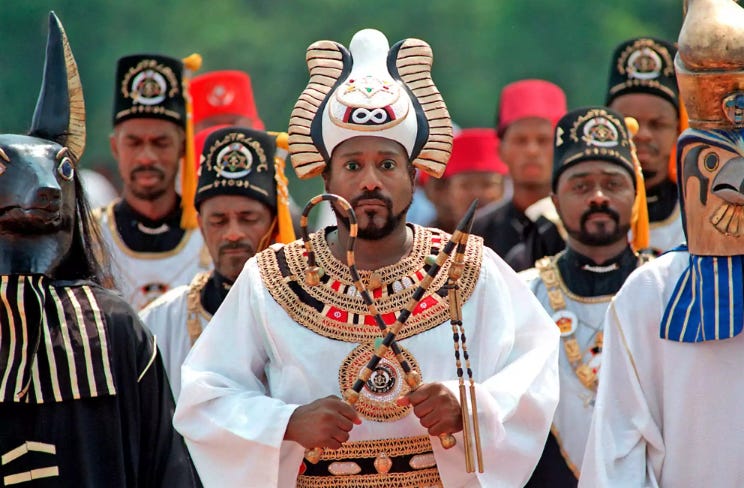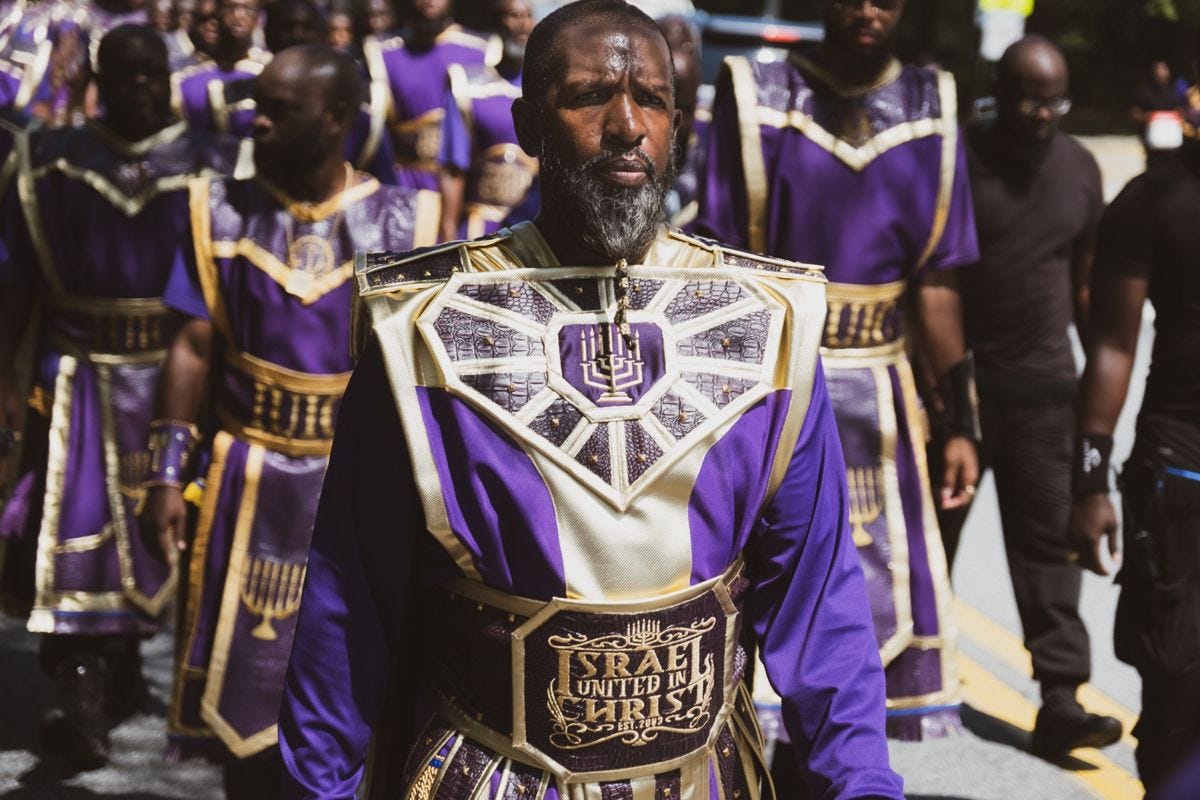The Complex Legacy of Black Religious Identity Cults
Introduction
Religious identity is a powerful force within any community, shaping beliefs, values, and social structures. Within the Black community, religious expression has historically provided resilience against systemic oppression. However, the rise of religious identity cults within Black communities has, at times, led to negative consequences, both collectively and individually. This article explores the history of such movements over the past 70 years, examining their impact and the often long-lasting psychological effects on followers.
Title: The Complex Legacy of Black Religious Identity Cults: Historical Impact and Psychological Consequences
Introduction
Religious identity is a powerful force within any community, shaping beliefs, values, and social structures. Within the Black community, religious expression has historically provided resilience against systemic oppression. However, the rise of religious identity cults within Black communities has, at times, led to negative consequences, both collectively and individually. This article explores the history of such movements over the past 70 years, examining their impact and the often long-lasting psychological effects on followers.
Historical Overview
1. The Civil Rights Era and Nation of Islam
In the 1950s and 1960s, during the height of the Civil Rights Movement, the Nation of Islam (NOI) emerged as a prominent force. Led by figures like Elijah Muhammad and later Malcolm X, the NOI emphasized Black empowerment, self-sufficiency, and separation from white culture. While it played a significant role in fostering racial pride and community solidarity, some criticized its cult-like aspects, such as the authoritarian control over members and the propagation of divisive ideologies.
2. The 1970s and the Rise of Syncretic Movements
The post-Civil Rights era saw the growth of syncretic movements that blended African spiritual traditions with Christian elements. Groups like the United Nuwaubian Nation of Moors, led by Dwight York, attracted followers by promising a return to African roots. Allegations of manipulation, control, and abuse marred York’s leadership, ultimately leading to his conviction for numerous crimes.
Chronology of Sectarian Movements
Over the past 70 years, several black religious identity cults have emerged, each with its unique doctrine but often sharing core characteristics like charismatic leadership, apocalyptic visions, and an emphasis on racial identity. Key movements include:
The Nuwaubian Nation – Founded by Dwight York in the 1960s, this group blended Afrocentric ideas with Egyptian mythology and extraterrestrial narratives, ultimately collapsing under the weight of legal issues and York's criminal convictions.
Branch Davidians – Although not exclusively African American, this group had significant black membership and gained notoriety during the 1993 Waco siege, showcasing how charismatic leadership and apocalyptic beliefs can lead to tragic confrontations with mainstream authority.
Hebrew Israelite Movement – A diverse set of groups claiming descent from the ancient Israelites, with certain factions embracing extreme doctrines that have led to confrontations and public safety concerns.
1980s-1990s: Charismatic Leadership and Controversial Teachings
During the late 20th century, charismatic leaders like Yahweh ben Yahweh and Jim Jones leveraged their influence to form religious communities that promised salvation and prosperity. The Yahweh ben Yahweh sect, for instance, infiltrated Black neighborhoods with a message of hope, yet it became infamous for violent acts commanded by its leader. Similarly, the Jonestown tragedy revealed the catastrophic potential of unchecked charismatic authority.
Psychological Effects and Consequences
1. The Impact of Psychological Manipulation
Many cult leaders employ psychological manipulation techniques to maintain control over followers, including isolation from the outside world, indoctrination, and the instillation of fear. Studies have shown that these practices can lead to trauma, anxiety, depression, and other long-lasting psychological effects in former members.
2. Loss of Personal and Social Identity
Psychologist Steven Hassan notes that cult members often experience significant identity disruption, as their personal beliefs and values become intertwined with the group’s ideology. The process of leaving a cult can thus involve a painful unraveling of self-identity, often leading to an identity crisis.
3. Family and Community Estrangement
Cults frequently demand total allegiance from members, sometimes severing familial and community ties. This estrangement can have long-term repercussions on social relationships and community cohesion, making reintegration difficult for former members.
4. Economic and Educational Consequencess
Many cults require financial contributions or service from their members, leading to economic strain. Some discourage higher education, trapping individuals in cycles of dependency and limiting their future opportunities.
Case Studies and Academic Insights
1. Observations from Former Members and Sociologists
Studies by sociologists and psychologists provide a deeper understanding of the cult experience. For example, a 2010 study by Lalich and Tobias sheds light on the systematic indoctrination members undergo and the challenges faced when returning to mainstream society.
2. The Role of Support Networks in Recovery
Research underscores the importance of counseling and support networks in aiding recovery from cult involvement. Initiatives by organizations such as the International Cultic Studies Association provide crucial resources for former members seeking to rebuild their lives.
Conclusion
Over the last 70 years, Black religious identity cults have left indelible marks on individuals and communities. While some movements have contributed positively by fostering empowerment and solidarity, others have caused psychological harm and social disruption. Understanding these dynamics is crucial for addressing their consequences and supporting recovery for those affected. Moving forward, the Black community can continue to draw strength from its rich spiritual traditions while remaining vigilant against manipulative influences that may seek to exploit vulnerability and desire for belonging.








